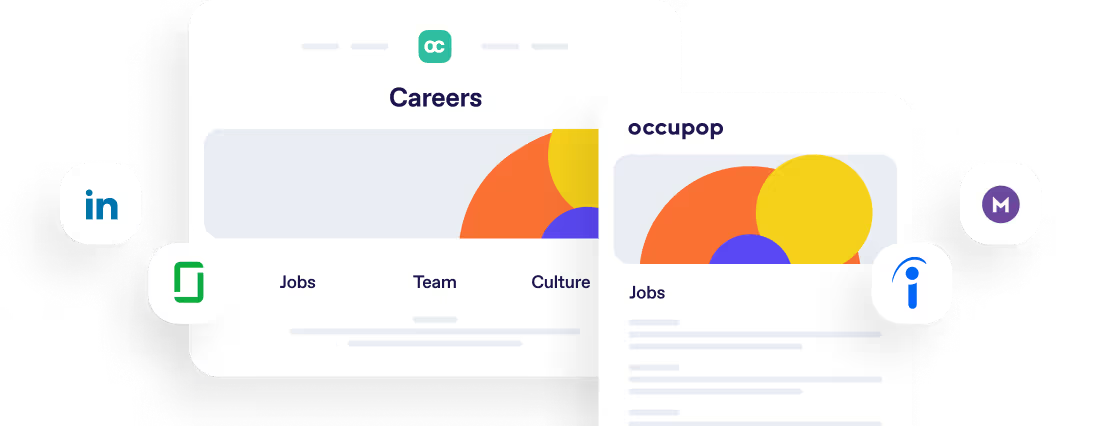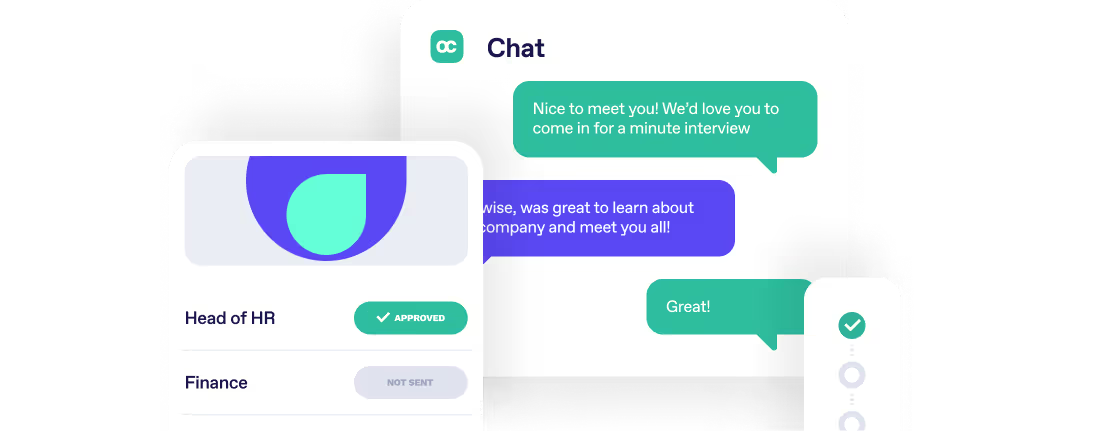Why is Onboarding So Important?



According to a survey by the Aberdeen Group, 83% of best-in-class organisations start their onboarding process before the new hire’s first day. This is probably because the first 90 days of employment are the most pivotal for an employee’s attitude about, and retention with, your company.
There are four distinct levels of onboarding, as outlined by author Talya Bauer, Ph.D.:
- Compliance - the employee learns about legal and policy-related issues
- Clarification - the employee is introduced to their new role and its related expectations
- Culture - the employee is exposed to the organisation’s values and company culture
- Connection - the employee forms personal relationships and information networks
The Aberdeen Group found that when it comes to the benefits of onboarding, their respondents found that employee retention, productivity and engagement were the most valuable for their business. To help you reap these benefits, we’ve rounded up all the reasons why onboarding is so important.
Help attract and retain employees
While you might feel like the recruitment process is complete once you receive an acceptance from your top candidate, employee onboarding is actually the step that determines if the process is over, or if you will have to start again in a few months. That’s because 20% of employee turnover happens in the first 45 days, according to a Jobvite report, and it’s often because the new hire wasn’t successfully onboarded.
A study published in the Academy of Management Journal found that high levels of support from leaders and team members during these first several days resulted in new hires working harder and being more positive about their job, while low levels of support led to unproductive employees who didn’t stay with the company longer than four months. In fact, 69% of employees are more likely to stay with a company for three years if they experienced a great onboarding process, according to SHRM.
This is where the “connection” level of onboarding comes in. According to a survey by BambooHR, new employees that left their job within the first three months said that they would have stayed longer if they had spent time with a friendly or helpful coworker. In order to improve your retention rate, use your onboarding process to formally introduce your new hire to their colleagues. You can also implement a mentorship programme in which you pair them up with a more senior employee during their first few weeks or months. This will provide your new hire with an experienced person to learn from and turn to with questions--and go to lunch with.

Help improve employee productivity
When an employee is first hired, it will take some time for them to adjust to your workplace, your systems and your expectations. In fact, it can take up to eight months for a new hire to become fully productive, according to an Allied Workforce Mobility survey.
Onboarding, however, has been proven to greatly reduce time to productivity:
- According to the Aberdeen survey, 62% of companies reported that an effective onboarding process resulted in higher time-to-productivity ratios.
- According to an UrbanBound infographic, companies with successful onboarding programmes experience 54% higher productivity from their new hires.
Time to productivity measures how long it takes a new hire to achieve job proficiency. This depends on whether or not the employee has the information, skills and equipment necessary to productively perform their job. While they should enter their new position with the required skills, an effective onboarding process will provide them with the right information and equipment to be fully productive.
In order to increase your employee's productivity during the onboarding process, clearly instruct your new hire on the various ways that your company, and their role within it, works. This should include everything from how to operate your software and applications, to where to park, to what key performance metrics they should be striving toward. This way, they can get straight to work rather than wasting time figuring out their new position.
INSERT-CTA
Help boost employee engagement
The Aberdeen survey found that 54% of companies with an effective onboarding process reported higher employee engagement. This is because successful onboarding will welcome the employee to your workplace while also accurately instructing them on how to thrive at your company. According to another study by the Corporate Leadership Council (now Gartner), effective onboarding increases an employee’s “discretionary effort” by 20%.
Engagement levels tend to be the highest during an employee’s first 90 days, according to HR Executive Magazine. However, if engagement levels are low from the beginning, it can be extremely difficult to raise them later on. Putting new employees through a fun and thoughtful onboarding programme will boost engagement levels immediately, helping you foster and maintain this engagement into the future.
One up-and-coming technique is gamification, and it is already being adopted by companies such as Pepsi, Deloitte and PwC. Deloitte, for example, organises new hires into groups with different backgrounds and experience levels. Each group uses a custom board game to learn about the company’s policies on compliance, privacy and ethics, taking turns to answer pre-set questions and discuss the answers. The game is complete once each team has agreed on the best and final answer for each question.
According to an article by Forbes, a successful gamified onboarding process links business goals with development, feedback and achievement, turning an otherwise mundane experience into an enjoyable journey. This has resulted in higher employee engagement, as well as increased retention and productivity rates.
INSERT-LINE
An effective onboarding process will benefit your company by increasing retention, improving productivity and boosting employee engagement.
But what if you’re struggling to reach the onboarding stage? Consider investing in a recruitment software in order to attract the right candidates. That’s where Occupop comes in. Our easy-to-use software can save you up to 4 to 5 hours a week on administrative tasks, thanks to our smart AI technology. We can help you post your job descriptions across multiple channels, sort through CVs, schedule interviews and send customisable emails to candidates. Get started with Occupop today so that you can start working on your onboarding process sooner!
Visit www.occupop.com to learn more, and subscribe below to get all of our recruitment tips and tricks sent straight to your inbox!
Summary Points
Employee onboarding is the first step in employee engagement and a company’s retention strategy, and it is also one of the most important steps in ensuring that a new hire will stay with your company long term. Here's why onboarding is so important:
- Talent attraction and employee retention
- Employee productivity
- Employee engagement
Simple. Beautiful.
Recruitment Software.
HR updates sent straight to your inbox
You might also like...


Manage your entire hiring process simply, from engagement to management, hiring and onboarding







Simple. Beautiful.
Recruitment Software.
Recruitment Software.






